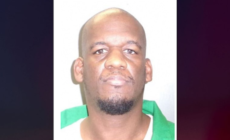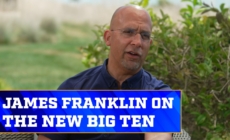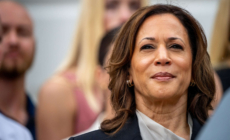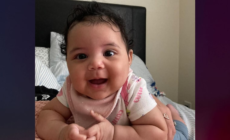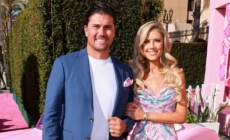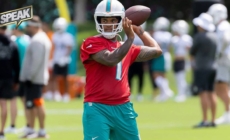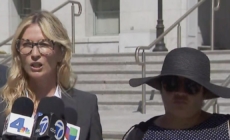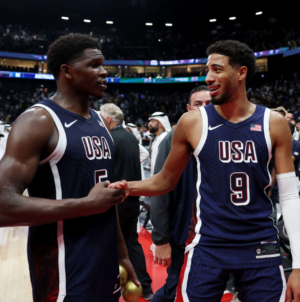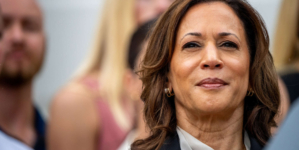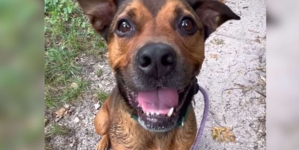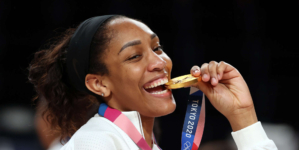-
Serial killer who wanted to be mafia hit man given life in prison after death sentence is overturned - 23 mins ago
-
Justin Timberlake’s lawyer claims police made ‘significant errors’ during star’s DWI arrest - 29 mins ago
-
Damages to college athletes range from few dollars to $1M-plus under settlement - 33 mins ago
-
Kamala Harris Dealt Triple Swing State Polling Blow in One Week - 42 mins ago
-
Exciting AI tools and games you can try for free - 46 mins ago
-
‘Firenado’ spotted above explosive Park fire near Chico - about 1 hour ago
-
Mich. woman accused of fatally injuring her girlfriend’s infant after getting drunk while babysitting - about 1 hour ago
-
Christina Hall refutes estranged husband Josh Hall’s ‘blindsided’ by the divorce claim - about 1 hour ago
-
Tua Tagovailoa inks four-year, $212.4M extension with Dolphins, $167M guaranteed | Speak - about 1 hour ago
-
Dog Returned Twice Hasn’t Given Up Hope Despite 1,244 Days At Shelter - about 1 hour ago
Michael Cohen’s ‘Incendiary’ Cross-Examination Not Helping Trump: Professor
The “incendiary” cross-examination of Michael Cohen is unlikely to overcome the huge weight of evidence in Donald Trump’s hush-money trial, a law professor has said.
Anthony Alfieri, a professor at University of Miami School of Law in Coral Gables, Florida, told Newsweek that, no matter what the defense lawyers throw at Cohen, it won’t overcome what has already been established by other witnesses and through banking and other documents.
Trump, the presumptive Republican presidential nominee for 2024, is the first former president in U.S. history to stand trial in a criminal case. He has pleaded not guilty to 34 counts of falsifying business records. He has continually said that this case and other criminal and civil challenges involving him are politically motivated.
The prosecution seeks to prove that, before the 2016 presidential election, Trump paid or discussed paying two women—adult film star Stormy Daniels and former Playboy model Karen McDougal—not to disclose his alleged affairs with them. He denies affairs with both women. Newsweek sought email comment from Trump’s attorney on Tuesday.
There were some colorful exchanges when Trump attorney Todd Blanche cross-examined Cohen on Tuesday. Referring to one of the latter’s social-media posts, Blanche said: “You called me a crying little s***, didn’t you?”
Cohen replied: “Sounds like something I would say.”
Michael M. Santiago/Getty Images
Cross-examination of Cohen, who was once Trump’s attorney and self-confessed “fixer”, began on Tuesday. The trial doesn’t sit on Wednesday, so cross-examination will continue on Thursday.
“The Trump defense team’s incendiary efforts to impeach Michael Cohen’s credibility by introducing evidence of bias… are unlikely to overcome the weight of both documentary and testimonial evidence previously adduced by the prosecution,” Alfieri said.
Prosecutors say that Cohen made the payment to Daniels on Trump’s behalf and was later reimbursed. They add that it is an illegal campaign contribution because the payment was intended to silence Daniels and thereby influence the 2016 presidential election.
Cohen was later jailed for illegal campaign contributions, tax fraud and other charges. He is now an implacable opponent of Trump, and they have attacked each other’s characters on social-media posts since the trial began.
Alfieri said that the jury doesn’t have to like Cohen, only to believe him.
“The jury needs neither to like nor to fully trust Cohen. To return a verdict for the prosecution, it is sufficient that the jury simply credit his testimony… for the specific purpose of proving Trump’s knowledge and intent, leaving the larger record to speak for itself,” Alfieri added.
He said that Trump’s lawyers are trying to show Cohen’s bias against Trump through his social-media posts; his conflicting financial interests; his previous affiliation with Trump; and his “misconduct” when answering questions during the Robert Mueller special counsel investigation, which was examining alleged foreign interference in the 2016 election.
Uncommon Knowledge
Newsweek is committed to challenging conventional wisdom and finding connections in the search for common ground.
Newsweek is committed to challenging conventional wisdom and finding connections in the search for common ground.
Source link
